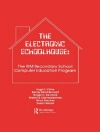‘This book brings together new thinking on education’s complex and evolving role in conflict and fragility. The changing nature of conflict, from inter- to intra-state, and with shifting geopolitical power balances, demands a reconceptualization of where education is positioned. Claims that education on its own can be an agent of conflict transformation are disputed. Deliberate attempts at peace education are not without critics and controversies. This collection aims to generate new realism from empirical and reflective accounts in a variety of countries and political contexts, as well as provide innovative methodological approaches to the study of education and conflict. The particular distinctiveness of the volume is the emphasis on ‘contested’ – it includes the debates and disagreements on the many faces of education in conflict, as well as material on teaching controversial issues in fragile contexts. Crucially, it underscores how education itself exists within highly contested projects of state, nation and region building. As well as overview comparative chapters, the collection encompasses a range of specific contexts, geographically and educationally – Algeria, Canada, El Salvador, Israel, Kenya, Mexico, Morocco, Nepal, Tunisia, UK and US, with settings that include schools, higher education and refugee camps. Focuses range from analyses of education in historical conflicts to contemporary issues such as post Arab Spring transformations. Perennial concerns about religion, colonialism, protest, integration, cohesion, emergencies, globalization and narrative are given new slants. Yet in spite of the debates, a cross-cutting consensus emerges as the crucial need for critical pedagogy and critical theory if education is to make any mark at all on conflict and fragility. ‘
İçerik tablosu
Introduction; Overview One: Context and Substance of the Book; Overview Two: The Place of Contestation in the Discourse of Conflict Education; Part 1: Debates on Frameworks, Theory and Methodology; Rethinking the Theoretical Grounding of Integrated Education in Conflicted Societies; Conflict-Fragility-Education: Issues in Conceptualization and Measurement; Changing the Prism: New Theoretical Approaches for Education in Emergencies; Part 2: Debates on Policy and Politicization; Conflict-Affected Contexts and Emergence of Global Education Policy: The Case of El Salvador’s EDUCO Program; The Contested Role of Religion in Conflict and Peace: Implications for Education; A Critical Analysis of Conflict, Education and Fragility in Nepal: Towards a Peacebuilding Education; Part 3: Debates on People as Agents of Change; Maghreb, Higher Education and Academic Freedom: In the Context of Post-Arab Spring Transformations; Coping with Complex Identities in the Midst of War: Palestinian Arab and Jewish Israelis University Students in a Conflict Resolution Course; Colonial Education and Political Violence in the Algerian War of Independence; Part 4: Debates on Pedagogy; Standards and Guidelines That Influence Conflict and Peace Education; Considering International Conflict and Border Violence: Social Studies Discussions at a United States Border High School; Storytelling in Religious Education: Promoting Respect and Empathy in Diverse Communities; Teaching for Freedom and Peace: A Classroom Narrative; Conclusion; Situating Studies of Education and Conflict within the Evolving Field of Comparative and International Education: Past, Present and Future; About the Contributors; Index.












